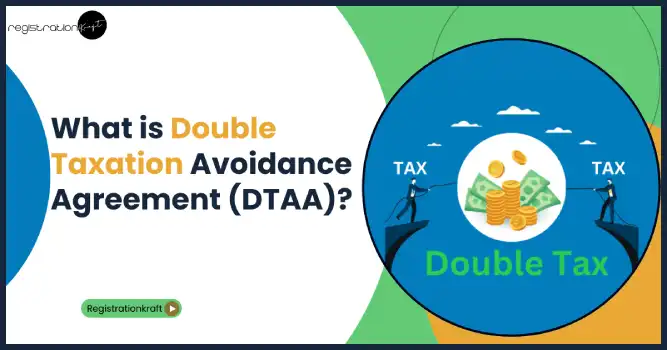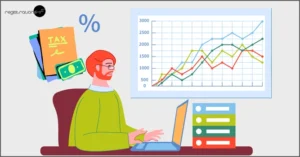What is a Double Tax Avoidance Agreement (DTAA)?

It is almost impossible to avoid taxes these days. Most of us pay taxes directly or indirectly.
If you are an NRI with investments in India, any income generated from your investments is subject to taxation. You might also be earning income in the country you’re living and working in. This means that you can end up being taxed on the same investment by both India and the country you’re living/working in. However, DTAA assures that you don’t have to pay taxes on the same income twice. It is an agreement which helps you to figure out the tax you owe and where exactly you owe it.
Meaning of DTAA
The full form of DTAA is Double Taxation Avoidance Agreement. DTAA is a treaty signed between two or more countries to help taxpayers in avoiding payment of double taxes on the same income. Provisions of DTAA become applicable in cases where an individual is resident of one country but earns his income in another.
Income Categories Covered under DTAA
Depending on the type of business or the position held by the citizen of one country in another country, DTAA income tax may cover all income forms or specific ones. Here are some income categories which are covered under DTAA:
- Salary
- Capital gains
- Property
- Services
- Fixed deposit accounts
- Savings
List of Countries which have DTAA with India
In total, 85 countries have a double taxation avoidance agreement (DTAA) with India. The table below represents the countries which have signed an agreement for the avoidance of double taxation with India.
| Sl No. | Country |
| 1 | Armenia |
| 2 | Australia |
| 3 | Austria |
| 4 | Bangladesh |
| 5 | Belarus |
| 6 | Belgium |
| 7 | Botswana |
| 8 | Brazil |
| 9 | Bulgaria |
| 10 | Canada |
| 11 | China |
| 12 | Cyprus |
| 13 | Czech Republic |
| 14 | Denmark |
| 15 | Egypt |
| 16 | Estonia |
| 17 | Ethiopia |
| 18 | Finland |
| 19 | France |
| 20 | Georgia |
| 21 | Germany |
| 22 | Greece |
| 23 | Hashemite kingdom of Jordan |
| 24 | Hungary |
| 25 | Iceland |
| 26 | Indonesia |
| 27 | Ireland |
| 28 | Israel |
| 29 | Italy |
| 30 | Japan |
| 31 | Kazakhstan |
| 32 | Kenya |
| 33 | South Korea |
| 34 | Kuwait |
| 35 | Kyrgyz Republic |
| 36 | Libya |
| 37 | Lithuania |
| 38 | Luxembourg |
| 39 | Malaysia |
| 40 | Malta |
| 41 | Mauritius |
| 42 | Mongolia |
| 43 | Montenegro |
| 44 | Morocco |
| 45 | Mozambique |
| 46 | Myanmar |
| 47 | Namibia |
| 48 | Nepal |
| 49 | Netherlands |
| 50 | New Zealand |
| 51 | Norway |
| 52 | Oman |
| 53 | Philippines |
| 54 | Poland |
| 55 | Portuguese Republic |
| 56 | Qatar |
| 57 | Romania |
| 58 | Russia |
| 59 | Saudi Arabia |
| 60 | Serbia |
| 61 | Singapore |
| 62 | Slovenia |
| 63 | South Africa |
| 64 | Spain |
| 65 | Sri Lanka |
| 66 | Sudan |
| 67 | Sweden |
| 68 | Swiss Confederation |
| 69 | Syrian Arab Republic |
| 70 | Tajikistan |
| 71 | Tanzania |
| 72 | Thailand |
| 73 | Trinidad and Tobago |
| 74 | Turkey |
| 75 | Turkmenistan |
| 76 | UAE |
| 77 | UAR (Egypt) |
| 78 | Uganda |
| 79 | UK |
| 80 | Ukraine |
| 81 | United Mexican States |
| 82 | USA |
| 83 | Uzbekistan |
| 84 | Vietnam |
| 85 | Zambia |
Which Documents are required to avail DTAA benefits?
To avail the benefits of DTAA, the following list of documents must be submitted by the NRI individual to the concerned deductor in a timely manner:
- Self-declaration cum indemnity format
- Self-attested PAN card copy
- Self-attested visa and passport copy
- PIO proof copy (if applicable)
- Tax Residency Certificate (TRC)
If an individual fails to provide a Tax Residency Certificate to the concerned deductor, he or she will not be entitled to claim any relief under avoidance of double taxation agreement. To obtain this certificate, the individual must file an application using Form 10FA of the Income Tax Act and submit it to the income tax authority. This certificate will be issued to the individual once the application has been processed successfully.
Conclusion
The provisions of DTAA help the NRIs to live and earn income abroad without having to pay income tax twice i.e., in India and in the country they reside/work in. A total of 85 countries have DTAA with India. Everyone has the liberty to earn a living in the country of their choice without having to compromise on the implications it would have on them when it comes to taxation. If you liked this article, do check out the rest of our articles.
Categories: Taxation
Tags:





